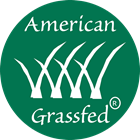
Biodiversity is essential for healthy ecosystems, and grassfed practices play a crucial role in supporting this natural variety. By focusing on sustainable farming, grassfed methods help promote diverse plant, animal, and insect life. Here’s how these practices are key to building better ecosystems on farms.
What is Biodiversity and Why Does It Matter?
Biodiversity refers to the wide variety of life forms within an ecosystem, including animals, plants, and microorganisms. The greater the diversity, the more resilient the ecosystem becomes. Healthy ecosystems contribute to soil health, water quality, and greater resistance to disease and pests—all of which are essential for long-term farm sustainability.

Grassfed Practices and Their Impact on Biodiversity
Grassfed farming promotes biodiversity through methods that support both environmental health and animal welfare. Here’s how:
- Rotational Grazing: Livestock are rotated through pastures, preventing overgrazing and allowing vegetation to regenerate. This supports new plant growth and attracts insects, birds, and wildlife.
- Soil Health: Grassfed systems emphasize minimal soil disturbance, fostering a rich variety of plant species and microorganisms critical for soil vitality.
- Wildlife Habitat: Open pastures on grassfed farms provide essential habitat for native birds, pollinators, and small mammals, enriching the local ecosystem.

The Environmental Benefits of Grassfed Practices
Grassfed farming is inherently sustainable. It contributes to carbon sequestration by enhancing the soil’s ability to absorb and store carbon, helping mitigate climate change. Grasslands act as carbon sinks, and regenerative grazing practices amplify this benefit, supporting a healthier planet.

Real-Life Examples of Pastured Biodiversity Success
Many farms that implement regenerative practices report positive outcomes, including increased plant diversity, reduced pest issues, and improved soil health. These results contribute to more productive and resilient ecosystems.
Final Thoughts
By supporting pastured practices, you’re investing in more than healthy livestock—you’re supporting thriving ecosystems. Biodiversity boosts environmental health, protects wildlife habitats, and strengthens the long-term sustainability of our food systems.
